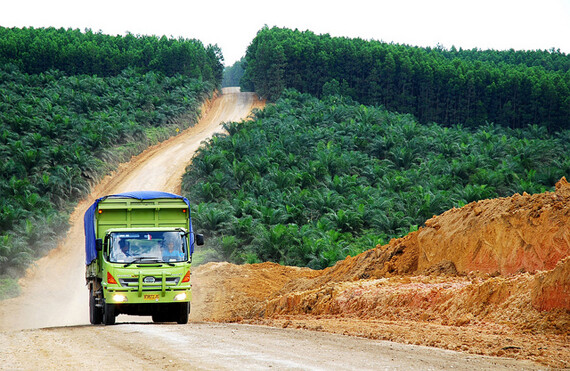EVAN O'NEIL: Doug, you have written recently about Brazil, where deforestation has declined dramatically since 2004. What has been the main force behind this success?
DOUG BOUCHER: Although many people deserve some of the credit—Brazilian NGOs like Greenpeace and Amigos da Terra, political leaders such as Presidents Lula da Silva and Dilma Rousseff, Environment Minister and Green Party candidate Marina Silva, the public prosecutors who took those who were deforesting to court, and the soy and beef industries who responded positively to political pressure—I'd say that the Brazilian people were the main reason for the success. It has been their demand for an end to deforestation, expressed through the political and economic systems, that made things change so dramatically, reducing deforestation by more than 75 percent in seven years.
It's also worth mentioning the financial support of Norway through its Forest and Climate Initiative, which paid Brazil compensation as deforestation went down, and thus provided both a reward and an incentive for further progress.
EVAN O'NEIL: Are Brazil's policies something that can be emulated in other tropical countries?
DOUG BOUCHER: Certainly. Although Brazil is more technologically and economically advanced than most tropical forest countries, its achievement has shown the path for others, and in fact it's helping others to follow it. For example, it's sharing the satellite and software technology that it uses to monitor deforestation from space with several African countries.
Brazil is sharing satellite and software technology with several African countries.
Costa Rica, Mexico, Vietnam, and several other countries have already accomplished very substantial reductions in deforestation, and I'm hopeful that by the end of this decade deforestation in the tropics overall can be reduced to zero.
EVAN O'NEIL: There was concern last year that changes in Brazil's forest code would reverse course. Has Brazil reached a détente between farming and conservation?
DOUG BOUCHER: We don't yet know whether the changes in the Forest Code will set things back in coming years. It's really too soon to tell. The final result of the long Forest Code fight was a complex compromise that didn't really satisfy anyone. I'd say it's not really a détente—more like an uneasy truce.
EVAN O'NEIL: You attended the climate change negotiations in Doha in December. Did any good news for forests emerge from that process?
DOUG BOUCHER: Not much, I'm afraid. In past years, even though the overall climate results were disappointing, at least we made good progress in the negotiations on REDD+ (Reducing Emissions from Deforestation, Forest Degradation and related pro-forest activities). This year, though, we didn't even have that—only agreements to keep on talking about an international REDD+ system in coming years.
EVAN O'NEIL: At the Union of Concerned Scientists you direct the Tropical Forest and Climate Initiative. What are your main projects right now?
We've been pushing the palm oil industry to use abandoned lands rather than destroying biodiversity.
DOUG BOUCHER: We're working more and more to change business behavior so that they ensure zero deforestation throughout their entire supply chains—from plantation to plate. In particular, we've been pushing the palm oil industry, which has been expanding rapidly into forests and peatlands in Indonesia and Malaysia, to change to a new business model that uses abandoned land rather than destroying biodiversity and producing global warming pollution.
Although governments and international negotiations have a big responsibility, we can't wait for them to act. We need to get the businesses that are driving deforestation to do the right thing, without waiting until governments are ready to force them to do it.





